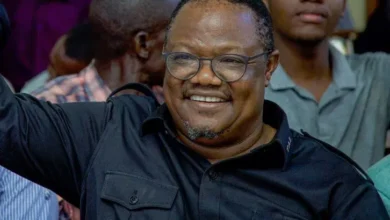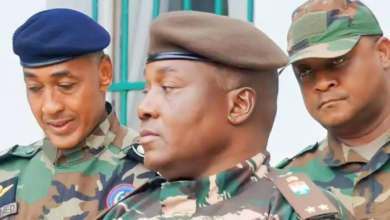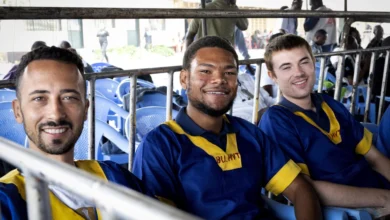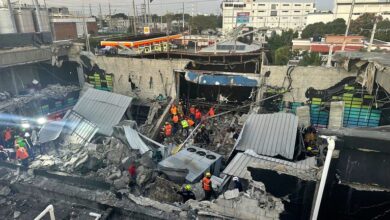Attempt to Arrest South Korean President Yoon Suk Yeol Suspended After Dramatic Standoff
Security forces and military block police operation amid mounting political crisis and growing public unrest.
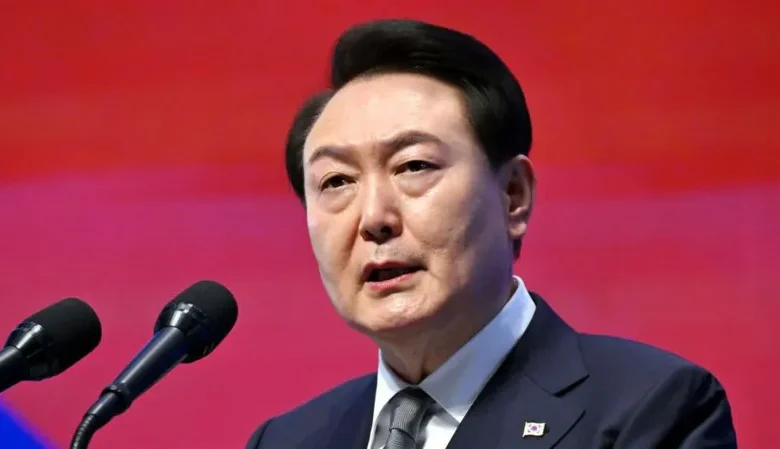
- An attempted arrest of suspended South Korean President Yoon Suk Yeol was called off
- The confrontation unfolded outside Yoon’s residence in central Seoul
- Before the operation was suspended, Yoon’s security team had engaged in negotiations with investigators
An attempted arrest of suspended South Korean President Yoon Suk Yeol was called off after a dramatic six-hour standoff between police and security forces.
The confrontation unfolded outside Yoon’s residence in central Seoul, where a large security presence and military units formed a human barrier to block the arrest team’s access.
Yoon, who has been under investigation for abuse of power and inciting insurrection after attempting to impose martial law in December 2024, has faced mounting legal pressure. A Seoul court issued an arrest warrant for him earlier this week after he ignored three summonses to appear for questioning.
Had the arrest been successful, Yoon would have become the first sitting president in South Korea’s history to be detained.
However, the operation, which began early on Friday with a 20-strong arrest team, soon escalated with the number of officers growing to around 150. Despite this, the team was still outnumbered by security forces and military personnel protecting the former president.
Yoon’s security officers, still tasked with safeguarding him despite his impeachment and suspension, clashed with investigators.
A senior official from Seoul’s Joint Chiefs of Staff confirmed a “confrontation” between the two groups. Ultimately, the Corruption Investigation Office (CIO) announced that the arrest had become “practically impossible” due to the standoff.
The CIO condemned Yoon’s “refusal of the legal process,” but indicated they would review their next steps. Supporters of Yoon, gathered outside the residence, celebrated the suspension, chanting “We won!” as the situation unfolded.
The decision to call off the arrest was also influenced by safety concerns for the officers involved in the operation, as the crowds outside the residence continued to swell.
Political Implications and Next Steps
The attempted arrest of Yoon, although unsuccessful, was not surprising, given his defiance during the investigation. Legal experts note that as a former chief prosecutor, Yoon is familiar with the legal avenues available to him, which may have contributed to his resistance to the proceedings.
The arrest warrant is set to expire on 6 January, meaning investigators may make another attempt over the weekend. However, logistical challenges, including the growing presence of his supporters, may complicate any future efforts. Authorities may also seek a new arrest warrant if necessary.
Before the operation was suspended, Yoon’s security team had engaged in negotiations with investigators, but tensions remained high throughout the day. Following the stand-off, police opened a criminal case against the head of Yoon’s security service and his deputy, summoning them for questioning.
Yoon’s legal team, led by lawyer Yoon Gab-keun, has indicated that they will challenge the arrest warrant in court, arguing that the investigators lacked the authority to detain the former president.
Ongoing Political Crisis
Yoon’s political turmoil began in early December after he attempted to impose martial law, sparking protests and deep divisions within the parliament. The opposition-controlled legislature impeached him on 14 December, though the move was initially delayed by boycotts from his allies in the ruling party.
In a further escalation, the National Assembly voted on 28 December to impeach acting president Han Duck-soo, who had been appointed to lead the country during Yoon’s suspension. Han’s removal marked the first time in South Korean history that an acting president was impeached.
The chaos continued on Friday with prosecutors indicting senior military officials, including Army Chief Park An-su and Special Forces Commander Kwak Jong-geun, on insurrection charges related to the martial law attempt. Both are set to face trial while in custody.
As South Korea grapples with this unprecedented political crisis, the fate of President Yoon remains uncertain, with further developments likely in the days ahead.


